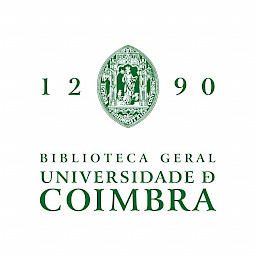1. Overview
The Joanina Library houses a unique collection of several thousand printed books from the Early Modern era. Extending from the beginnings of typography to the end of the 18th century, this collection bears witness to the production, circulation, and organization of knowledge in that period. Considered one of the most beautiful and significant baroque libraries in the world, the Joanina Library is also one of the historic buildings that is part of the UNESCO World Heritage Site of the University of Coimbra.
The Digital Joanina Project aims to digitize the Joanina Library collection and create a multifunctional platform. In addition to building a structured repository, the project will provide access to all digitized content as facsimile images and text. Digital Joanina adopts principles of open science and interoperability, follows best practices for digitization of historical collections, develops policies and procedures to manage content and services at scale, and maintains a modular and open infrastructure.
When completed, the Joanina Digital Library will include the approximately 30,000 works stored on the main floor of the library. This project is the result of a partnership between the University of Coimbra and the Sharjah Book Authority (SBA), which will fund the project with around eight million euros through the sponsorship of the head of state of Sharjah, Sheikh Sultan bin Muhammad Al-Qasimi, distinguished in 2018 as Doctor Honoris Causa by the University of Coimbra.
2. Impact
Digital Joanina's collections will be available free of charge to all users. Not only will the 500,000 annual visitors to the Joanina Library be able to discover its collections, but also all those who have not had the opportunity to visit it will be able to explore it in this way. The Joanina’s historic collection of rare books will help educate readers in the history of books and the history of knowledge.
Digital Joanina will also enable students and researchers to have aggregate access to a very significant sample of academic production from the 16th, 17th, and 18th centuries, including numerous works of European culture and science (many of which in their first editions). Furthermore, it will provide a new resource both for the systematic study of the production and circulation of books in that period, and for the study of the history of libraries as information systems.
The Middle East Collection, named as the “Sultan bin Muhammad Al-Qasimi Library” collection, will provide a research resource for several scientific fields, facilitating structured access to a set of historical materials related to the history of the presence of the Portuguese in the Persian Gulf. This contribution to the history of relations with the Arab world highlights the relationship between the University of Coimbra and the emirate of Sharjah.
It is also expected that the project will be able to develop a model for the digitization of old book collections from historical libraries, bringing together the following two objectives:
a) Public dissemination of collections: experts in various fields will be invited to curate digital exhibitions based on works selected from the Digital Joanina collection, thus mediating the content of this historical library for diverse contemporary global audiences in the electronic public space.
b) Fostering new research: Digital Joanina's infrastructure, data model and tools will be designed in ways that contribute to supporting future research projects dedicated to global cultural history, the history of production and organization of knowledge and the history of the book.
Finally, we hope that the future integration of Digital Joanina's collections into the Europeana heritage portal will contribute to increasing its global impact.
3. Implementation
To guarantee the technical robustness and scientific quality of the project, implementation was planned in two stages: the first stage, called “Pilot Project” (months 1 to 12), is dedicated to the digitization and detailed cataloging of the Middle East Collection. In this stage, the best solutions related to data acquisition, platform architecture and interface design will be tested. Technical standards, human resources, as well as workflow and quality control for the entire project will be tested and calibrated.
The second stage, called “Noble Floor” (months 13 to 72), focuses on the digitization and complete cataloging of the main floor collection (c. 30,000 items) in accordance with the procedures resulting from the first stage. Digital Joanina’s collections will be integrated into a new database of old books at the University of Coimbra, which will also include the current Almamater collection. Interfaces will be multilingual, including Portuguese, English, and Arabic.
The project began in 2024 and is expected to be completed in 2029. Results of the pilot project will be online in 2025. As they are validated, new sets of documents will be progressively published.
4. Team
Coordination
Delfim Leão (vice-rector for Culture, Communication and Open Science at the University of Coimbra)
Manuel Portela (Director of the General Library at University of Coimbra)
Eman Bushulaibi (Director of Sharjah Public Library)
Valentim Branquinho (Chief Technology Officer at UC Framework)
Karima Anrhourrache El Azizi ( Head of International Affairs)
BGUC Working Group
Manuel Portela
A.E. Maia do Amaral
Luisa Machado
Fátima Bogalho
Ana Miguéis
Ana Luísa Silva
UC Framework Working Group
Valentim Branquinho
André Rodrigues
Sharjah Working Group
Eman Bushulaibi
Karima Anrhourrache El Azizi
Fida Al Abed
Consultants
Johanna Drucker (UCLA)
Nuno Freire (Europeana)
Eva Schubert (MWNF - Museum With No Frontiers)
5. News
UC Notícias, 21-02-2024: UC e Autoridade Literária de Sharjah celebram parceria para digitalizar acervo da Biblioteca Joanina
Público, 21-02-2024: Universidade de Coimbra vai digitalizar 30 mil livros antigos da Biblioteca Joanina
Expresso, 21-02-2024: Digitalização de 30 mil livros da Biblioteca Joanina de Coimbra custará €8 milhões
Antena 1, 21-02-2024: Obras literárias que estão na Biblioteca Joanina, em Coimbra, vão ser digitalizadas
RTP3 – Ensaio, 22-02-2024: Obras literárias que estão na Biblioteca Joanina, em Coimbra, vão ser digitalizadas
Diário As Beiras, 20-02-2024: Financiamento dos Emirados Árabes Unidos para digitalizar Biblioteca Joanina
Diário de Coimbra, 22-02-2024: Tesouros da Biblioteca Joanina em formato digital

